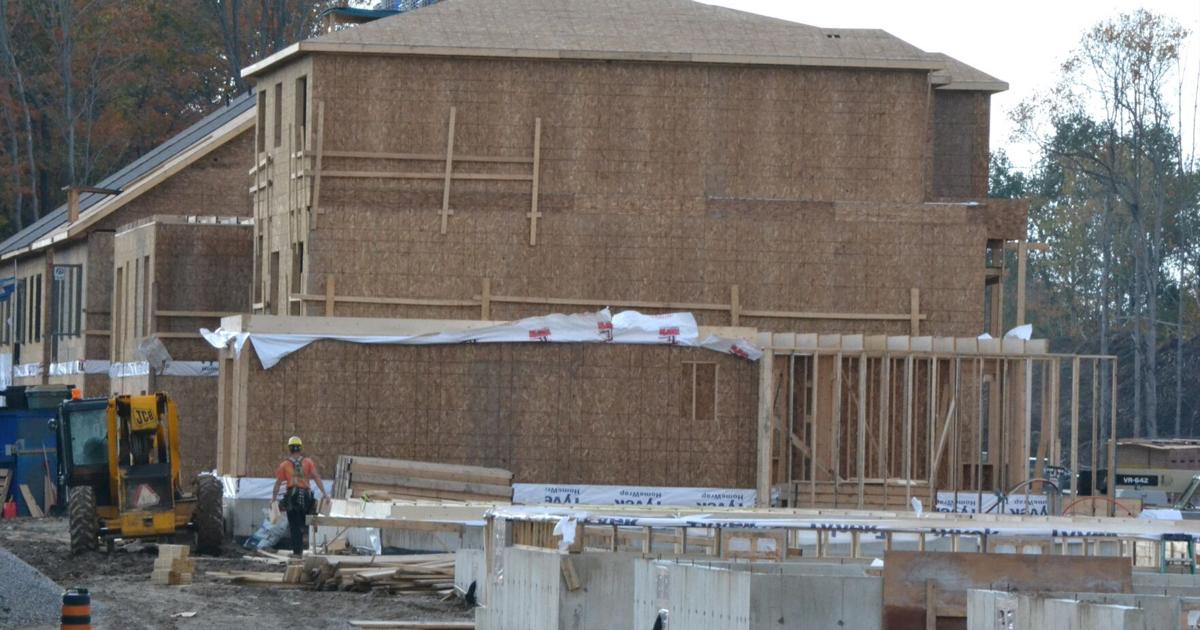Why residential landlord is the best way to get screwed and nothing you can do about it I would say never and buy a reit.
Sent from the future
Sent from the future
Doesn’t seem like many investments return those type of dividends in the long term or capital gains. Especially considering the leveraging accessibility to it.Why residential landlord is the best way to get screwed and nothing you can do about it I would say never and buy a reit.
Sent from the future
Can you afford 2 years of mortgage and no rent if the tenant decides not to pay? Plus the repairs to damage the non paying tenant will do.Doesn’t seem like many investments return those type of dividends in the long term or capital gains. Especially considering the leveraging accessibility to it.
REITs, or any other investments you’re limited by available cash.
Mind you I wouldn’t HELOC on stocks or ETFs. Maybe my risk averse mentality is what’s screwing me.
Nope. Can’t do that.Can you afford 2 years of mortgage and no rent if the tenant decides not to pay? Plus the repairs to damage the non paying tenant will do.
Sent from the future
and that's why I never got into rentals...too much of a risk, especially when I was single...not worth the hassle in my eyes...too many rights for tenants and not enough safeguards for landlords...and yes, I know there are good tenants and bad landlords, but I'm talking about honest landlords who really are in it for the long haul...Can you afford 2 years of mortgage and no rent if the tenant decides not to pay? Plus the repairs to damage the non paying tenant will do.
Sent from the future



Anti-flipping law is new. Now, they still may not catch people as the government has been intentionally ostriching on the whole mess. Anti-flipping law doubles the tax payable but if was already paying zero and not getting caught, this law won't affect him. If government finally proactively enforces (and ideally issues penalties of at least double the anti-flipping tax payable) things may improve.That's assuming he is legit like he says, paying taxes. Indian guy came to buy something from me last night. Said he's flipped/held 11 houses for as little as 2 or 3 months on some of them in the last 8 years. I asked how he did it if he had a corporation for taxes and what not, and he said if you only do a couple in a year no one asks questions. So I guess the whole 1 year principal residence thing is only a guideline? In other words he wasn't too worried about giving the government their cut.
If you can reasonably explain why you’re switching houses within a year…CRA forgives you.That's assuming he is legit like he says, paying taxes. Indian guy came to buy something from me last night. Said he's flipped/held 11 houses for as little as 2 or 3 months on some of them in the last 8 years. I asked how he did it if he had a corporation for taxes and what not, and he said if you only do a couple in a year no one asks questions. So I guess the whole 1 year principal residence thing is only a guideline? In other words he wasn't too worried about giving the government their cut.
If you can reasonably explain why you’re switching houses within a year…CRA forgives you.
But that assumes you even get questioned on it.
Knew a guy that would buy a house, ‘move into it’ while he did renovations, wait a year, and sell it.
Meanwhile his next house was already rented and waiting for him to ‘move in’ again. Rinse and repeat.
Guy was a mortgage broker, real estate agent, and his own PM for the flips.
The anti-flipping law has requirements. "Just because" isn't good enough if you are at less than 365 days of ownership. There are enough outs thought that most people can probably come up with one they can pretend applies to them. Elderly parents seem plausible. Most have some type of "serious disability or illness".You don't even need a valid reason, last time I was questioned by the good 'ole CRA. Timeline doesn't matter, just needs real proof you moved as a primary residence at the time.
And for the small percentage that do, the penalty isn't that bad. If you only catch 10% of the people, the fine needs to be 10x the benefit for most people to avoid the risk. In this case, they catch <<<1% and the fine is ~0.5x. Even if you get caught you win. If government kept the entire selling price of the house as proceeds of crime, most people would stop playing the game.The number of people gaming the system is beyond alarming , and many have no worries about being caught . Because most of the time they don’t get caught .
Sent from my iPhone using GTAMotorcycle.com
I've often referred to my 1960's experience where a tradesman's gross wages would pay for a house in three years.A mortgage broker bought a pre-construction end unit townhome in barrie in 2020 for 585 as an investment. Market price almost doubled and then pulled back before closing. His mortgage payments are $3500. That means he borrowed in the ballpark of 500k. Rent is in the ballpark of 2500. Could probably sell for ~650k. If he sells, there are real estate fees and hst on the minus side (in the ballpark of 105k). If he made money, anti-flipping law kicks in and it is 100% taxable income. His "investment" is looking closer to speculation and about to kick his ass.

Should you walk away? What Simcoe County experts are telling new home buyers
New home buyers face challenging decisions as homes are built and closing dates approachwww.simcoe.com

